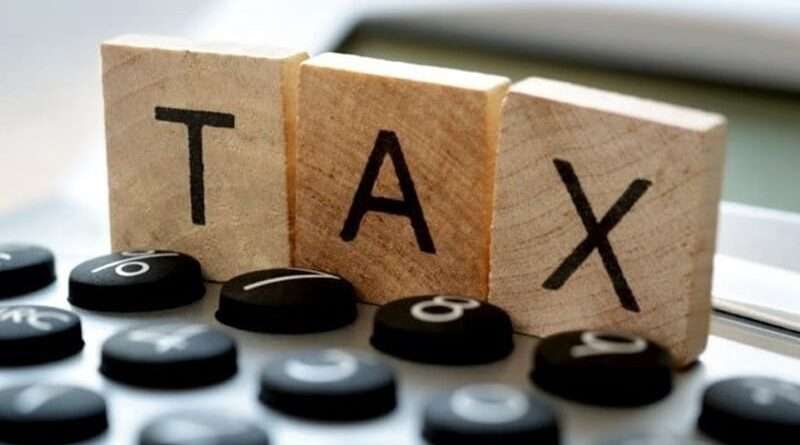Senate Panel Endorses Tax Laws Amendment Act 2024: Key Changes and Implications
|
Getting your Trinity Audio player ready...
|
Overview of the Tax Laws Amendment Act 2024
In a significant move to strengthen Pakistan’s tax regime and increase compliance, a Senate panel has endorsed the Tax Laws Amendment Act 2024. This proposed legislation introduces several key measures aimed at cracking down on non-filers and enhancing the capacity of the Federal Board of Revenue (FBR). If passed, the bill will impose strict restrictions on non-filers, including shutting down bank accounts and limiting the scope for high-value transactions such as buying property, cars, and other assets.
The bill has passed through the Senate Standing Committee on Finance with unanimous support, though certain amendments were proposed to ensure the law’s effectiveness and fairness. The committee’s chairperson, Senator Saleem Mandviwalla from the Pakistan Peoples Party (PPP), led the meeting attended by members of major political parties, including the Pakistan Muslim League-Nawaz (PML-N) and the Pakistan Tehreek-e-Insaf (PTI).
Key Proposals of the Tax Laws Amendment Act
The Tax Laws Amendment Act 2024 introduces several new legal concepts, such as categorizing individuals into eligible and ineligible groups based on their filing status. Here’s an overview of the most important proposals under this bill:
1. Closure of Bank Accounts for Non-Filers
One of the most significant provisions in the bill is the closure of bank accounts for non-filers with balances exceeding Rs1 million. According to the proposed legislation, non-filers will not only face restrictions on purchasing assets but also on operating their bank accounts.
- Ineligible persons, as defined by the law, will not be allowed to operate accounts holding more than Rs1 million. These individuals will be restricted from withdrawing substantial sums of money from their bank accounts.
- They will also face a ban on using their bank accounts for transactions above certain thresholds.
This step is aimed at targeting those who are not paying taxes or filing returns despite having the financial means to do so, thereby encouraging greater tax compliance.
2. Justifying the Source of Wealth for Major Purchases
Another key provision of the bill is the requirement for tax filers to explain the source of funds before purchasing high-value assets such as homes, cars, and shares. This measure is designed to prevent money laundering and tax evasion, ensuring that individuals can prove the legitimacy of their financial sources.
- The law states that individuals will need to demonstrate the source of funds for major purchases. This includes documenting the origin of money used to buy property, cars, or shares.
- The FBR will play a central role in tracking these transactions and ensuring that the sources of funds align with the individual’s tax returns.
3. Restrictions on Property and Car Purchases
Under the new legislation, ineligible persons will face restrictions on the purchase of high-value assets:
- Property purchases will be limited to individuals who are eligible filers.
- The bill restricts the ability to purchase cars above 800cc for ineligible individuals. However, ineligible persons will still be allowed to purchase lower-value assets like rickshaws, motorcycles, and pick-up vehicles with capacities of 800cc or below.
- Shares and other assets can only be bought by individuals who qualify as eligible filers, and the value of assets purchased should not exceed 130% of the value declared in their previous tax returns.
The Concept of Eligible and Ineligible Persons
The introduction of the eligible and ineligible categories is one of the most controversial aspects of the amendment. The new system aims to ensure that only individuals who are paying their fair share of taxes can engage in significant transactions, such as purchasing property, vehicles, or shares.
- Eligible persons are those who file taxes regularly and maintain their tax compliance. These individuals will have unrestricted access to assets and bank accounts.
- Ineligible persons, on the other hand, are those who fail to file taxes or whose declared income does not align with their financial transactions. Such individuals will be restricted from purchasing high-value assets and will face limitations on their financial activities.
Restrictions on DHA Transactions
The Defence Housing Authority (DHA), which has long been a focal point in the property market, will also be affected by the new law. Senator Anusha Rahman suggested placing restrictions on DHA transactions where the property has not been transferred in the name of the buyer. This will ensure that the buyer is fully accountable for the transaction and the source of funds.
The FBR Chairman, Rashid Langrial, confirmed that these restrictions would also apply to DHA. Although DHA properties often involve a right to live rather than immediate ownership transfer, the FBR will monitor eligibility to ensure tax compliance before finalizing transactions.
The Role of Commercial Banks in Data Sharing
Another important development in the Tax Laws Amendment Act 2024 is the proposed data-sharing initiative with commercial banks. The government has proposed granting the FBR the power to access and share taxpayer data with commercial banks to ensure that banking information aligns with declared tax data.
- This initiative is aimed at detecting discrepancies in individuals’ financial records and ensuring that those with significant bank balances are paying the appropriate taxes.
- Commercial banks will be required to report any discrepancies to the FBR, which will then investigate further.
The Potential Impact on the Real Estate Market
The new laws are expected to have a profound impact on the real estate market. The requirement for individuals to justify the source of funds before purchasing property could lead to a slowdown in property transactions. Finance Minister Muhammad Aurangzeb noted that the new regulations could even result in a complete shutdown of the real estate sector if the government does not carefully manage the implementation.
There is concern that the tightened regulations could reduce the demand for real estate, especially among investors who are reluctant to disclose their sources of income. The new task force on the development of the housing sector will review the impact of current taxes on real estate and propose a fair taxation system to minimize the negative effects on the sector.
Conclusion
The Tax Laws Amendment Act 2024 represents a major step forward in Pakistan’s efforts to increase tax compliance and reduce money laundering. By implementing stricter controls on bank accounts, transactions, and asset purchases, the government aims to ensure that those who can afford to pay taxes do so. The introduction of eligibility criteria for major transactions is expected to encourage more people to file taxes and improve the transparency of financial dealings in the country.
While the proposed changes are expected to have a significant impact on various sectors, including real estate, the government is committed to working with stakeholders to ensure the law’s smooth implementation. As the bill moves to the National Assembly for a vote, its passage will mark a new era of tax compliance and financial transparency in Pakistan.
Frequently Asked Questions (FAQs)
1. What is the Tax Laws Amendment Act 2024?
The Tax Laws Amendment Act 2024 is a proposed legislation aimed at increasing tax compliance by closing bank accounts of non-filers, requiring individuals to justify the source of their wealth before purchasing high-value assets, and restricting access to certain transactions.
2. How does the bill affect property purchases?
The bill restricts ineligible persons from buying property unless they meet specific tax criteria. Only eligible tax filers will be allowed to purchase property, and they will need to explain the source of their funds.
3. Who qualifies as an “eligible” person under the new law?
An eligible person is one who files taxes regularly and complies with the country’s tax regulations. These individuals will have unrestricted access to financial transactions such as buying property, cars, and shares.
4. What restrictions are placed on non-filers?
Non-filers, categorized as “ineligible persons,” will be prohibited from buying property, cars over 800cc, or shares. They will also face limitations on bank account transactions and withdrawals.
5. How will the FBR enforce these new regulations?
The FBR will use data-sharing agreements with commercial banks to monitor bank accounts and financial transactions. Ineligible persons will be notified and asked to comply by converting their accounts to an Asaan account or becoming eligible filers.
ALSO READ
https://skipper.pk/2024/12/27/pakistan-turkiye-agriculture-cooperation/




